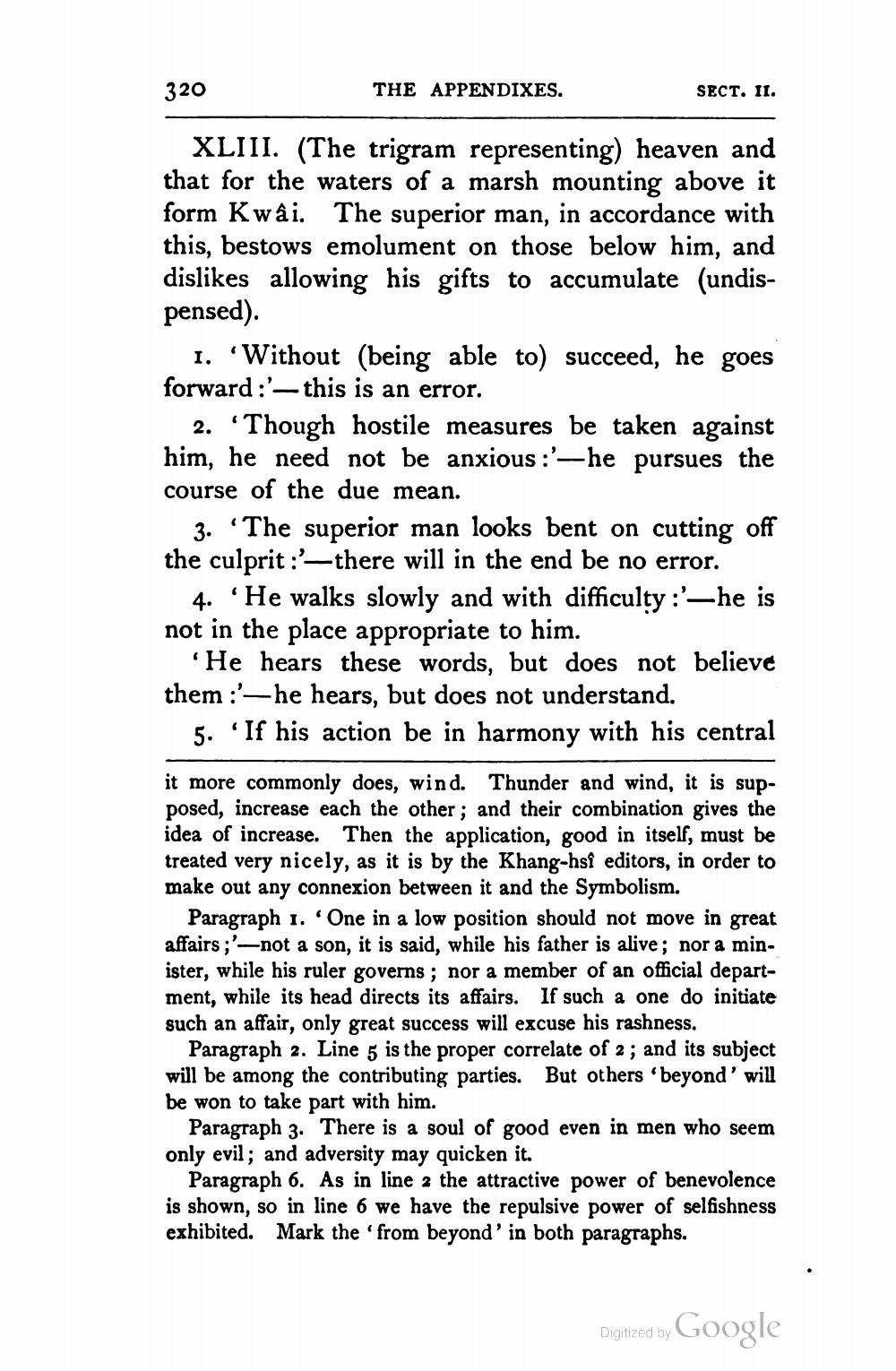________________
320
THE APPENDIXES.
SECT. II.
XLIII. (The trigram representing) heaven and that for the waters of a marsh mounting above it form Kwai. The superior man, in accordance with this, bestows emolument on those below him, and dislikes allowing his gifts to accumulate (undispensed).
1. 'Without (being able to) succeed, he goes forward:'- this is an error.
2. 'Though hostile measures be taken against him, he need not be anxious:'-he pursues the course of the due mean.
3. The superior man looks bent on cutting off the culprit:'-there will in the end be no error.
4.
'He walks slowly and with difficulty:'-he is not in the place appropriate to him.
'He hears these words, but does not believe them :- he hears, but does not understand.
5. 'If his action be in harmony with his central
it more commonly does, wind. Thunder and wind, it is supposed, increase each the other; and their combination gives the idea of increase. Then the application, good in itself, must be treated very nicely, as it is by the Khang-hsî editors, in order to make out any connexion between it and the Symbolism.
Paragraph 1. One in a low position should not move in great affairs;'-not a son, it is said, while his father is alive; nor a minister, while his ruler governs; nor a member of an official department, while its head directs its affairs. If such a one do initiate such an affair, only great success will excuse his rashness.
Paragraph 2. Line 5 is the proper correlate of 2; and its subject will be among the contributing parties. But others 'beyond' will be won to take part with him.
Paragraph 3. There is a soul of good even in men who seem only evil; and adversity may quicken it.
Paragraph 6. As in line 2 the attractive power of benevolence is shown, so in line 6 we have the repulsive power of selfishness exhibited. Mark the 'from beyond' in both paragraphs.
Digitized by
Google




